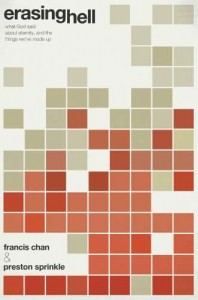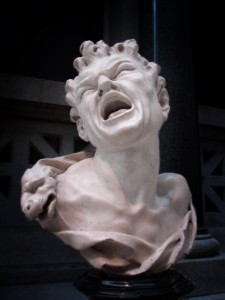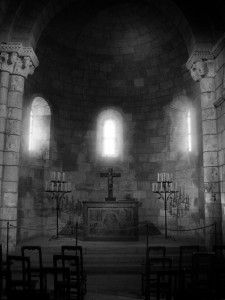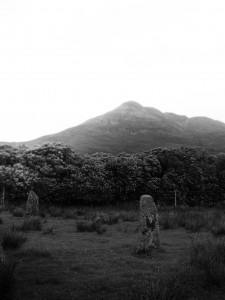 There’s a lot of conversation lately about heaven, hell, salvation, and damnation. As I’ve said before, I think that’s a very good thing. The church ‘at large’ is in the midst of an age-old conversation over how God saves, who God saves, and therefore the very character of God.
There’s a lot of conversation lately about heaven, hell, salvation, and damnation. As I’ve said before, I think that’s a very good thing. The church ‘at large’ is in the midst of an age-old conversation over how God saves, who God saves, and therefore the very character of God.
That’s not to say that the conversation is always going well. The “Rob Bell” Facebook fan page has degenerated–going from bad to worse. Mark Driscoll, during a sermon a few weeks back made a veiled reference to Rob Bell, said that some pastors are “going to hell.”
Francis Chan’s new book, Erasing Hell, is the next volume to be thrown into the ring. Like Mike Wittmer’s book Christ Alone, and Galli’s forthcoming God Wins, it’s clearly a direct answer to Rob Bell. And, Chan is, in my estimation, personally gentle to Bell, while fundamentally disagreeing with some of Bell’s biblical interpretation and a few of his conclusions.
The difference between some of the reactionary pieces that are springing out of the evangelical wing of the church and this book is that much of the others seem to merely prop up reformed evangelicalism’s soteriological doctrines, while Erasing Hell does some of that AND a lot more.
It also critiques reformed-evangelical Calvinism, and the transactional view of getting saved–though quite a bit differently than Love Wins does this.
Here’s what I like about Erasing Hell:
- Chan openly admits that he’s uncomfortable with hell and people going there. He says that if he were in charge of the universe he wouldn’t have laid out hell and salvation in the same way that he believes that God has. And, he’s willing to submit to the omniscience of God. I like that. It’s honest.
- He speaks of salvation and damnation in broader terms than typical reformed Calvinism. He talks about it in terms of how we speak of our brothers (in direct reference to some of the awful things people have said about Rob Bell). And, he talks about money, poverty, and racism as elements of a faithful life that lead to either paradise or torment. This is a huge step forward, and will help this book serve not only as a consolation to evangelicalism (as it reacts to Bell), but also as a challenge to it. The money quote: “While Jesus is ambiguous at times about the nature and duration of hell, He’s crystal clear about the necessity of reaching the poor.” (Kindle location 1502)
- And, Chan is helpfully clear that “the Gospel” isn’t just about avoiding hellfire and damnation. He says “the gospel is deeper and more wonderful than just that.” (Kindle location 1708) Amen, and amen.
He wrote the book to prove the existence of a fiery hell. On that point, I really didn’t need convincing, so maybe that’s why I found the opening to be a little hollow. For those who aren’t convinced in the existence (and nature) of hell, it will be interesting to see the reaction(s) to this book, and Chan’s attempt threading the needle with brutal honesty and humility. And, for those who have a very hard time inserting poverty, racism, and how we treat our brothers and sisters into a conversation on salvation, this book will be bitter-sweet.
Wherever you’re ‘at’, if you’re interested in following the salvation-damnation conversation that’s going on in the church and in society at large, this book is required reading.
40.703554-74.547611








